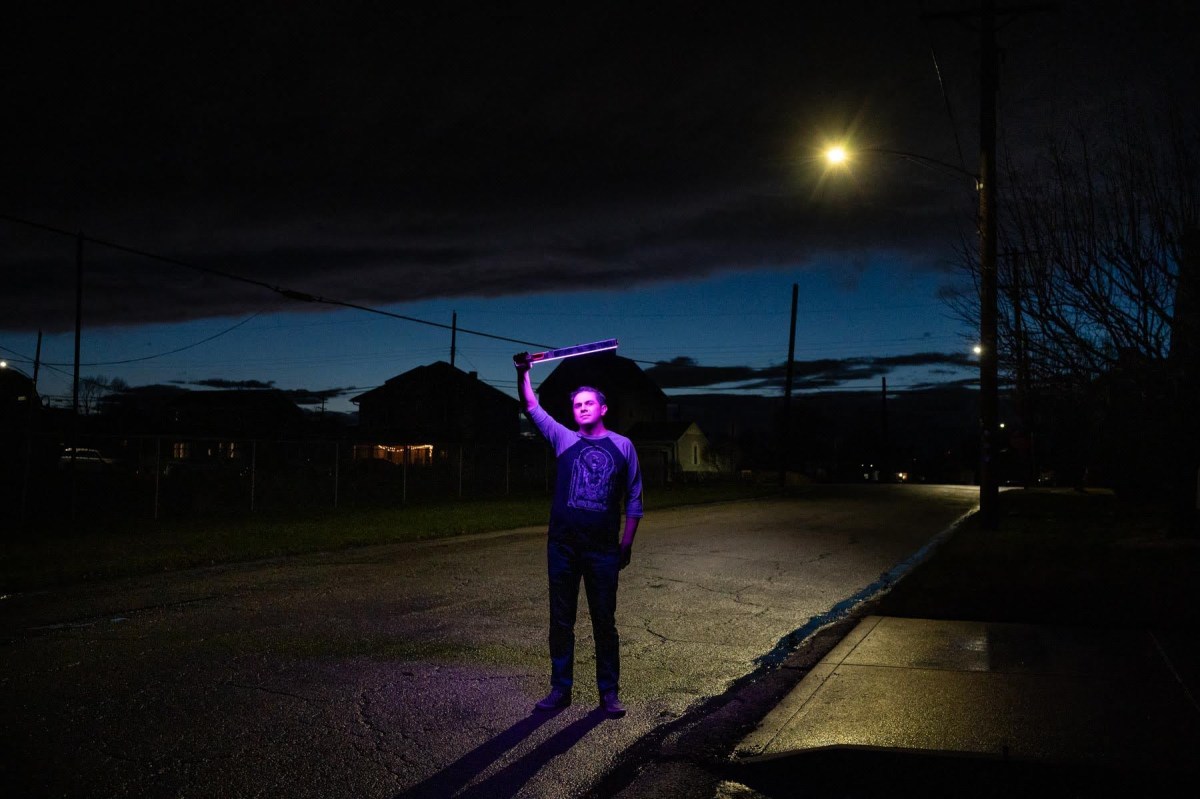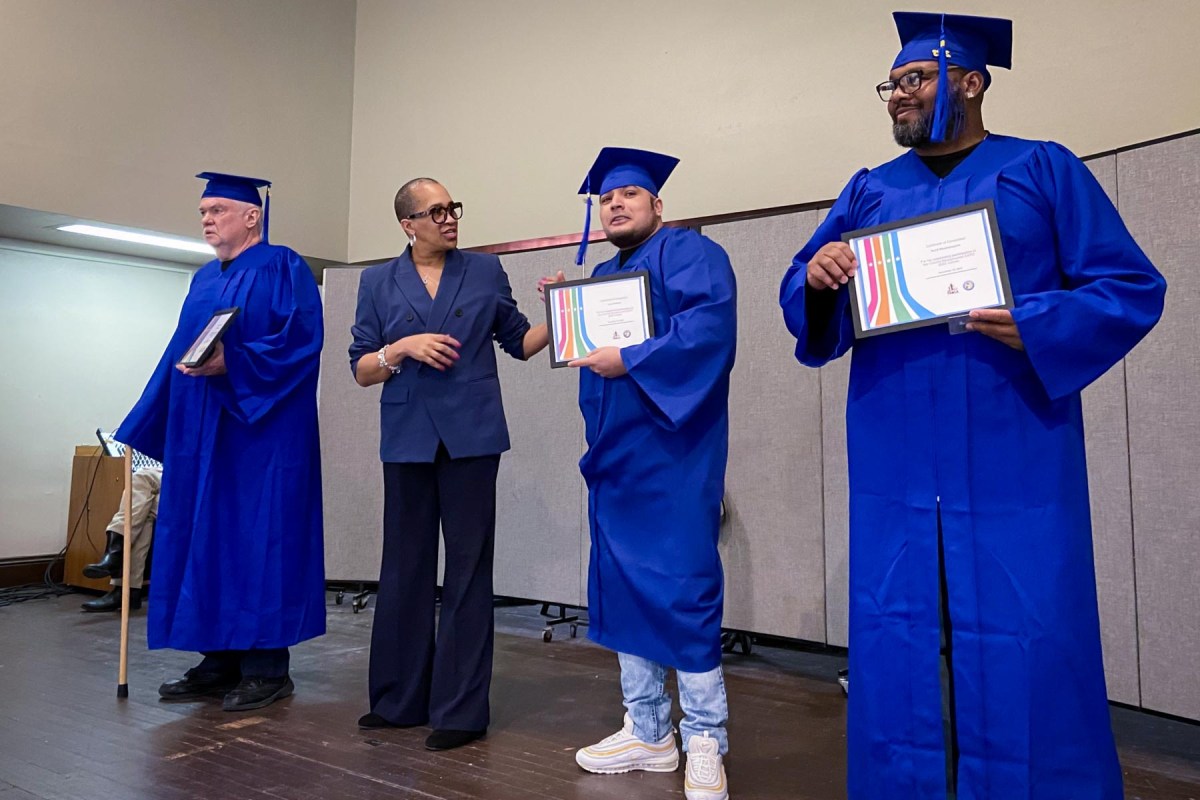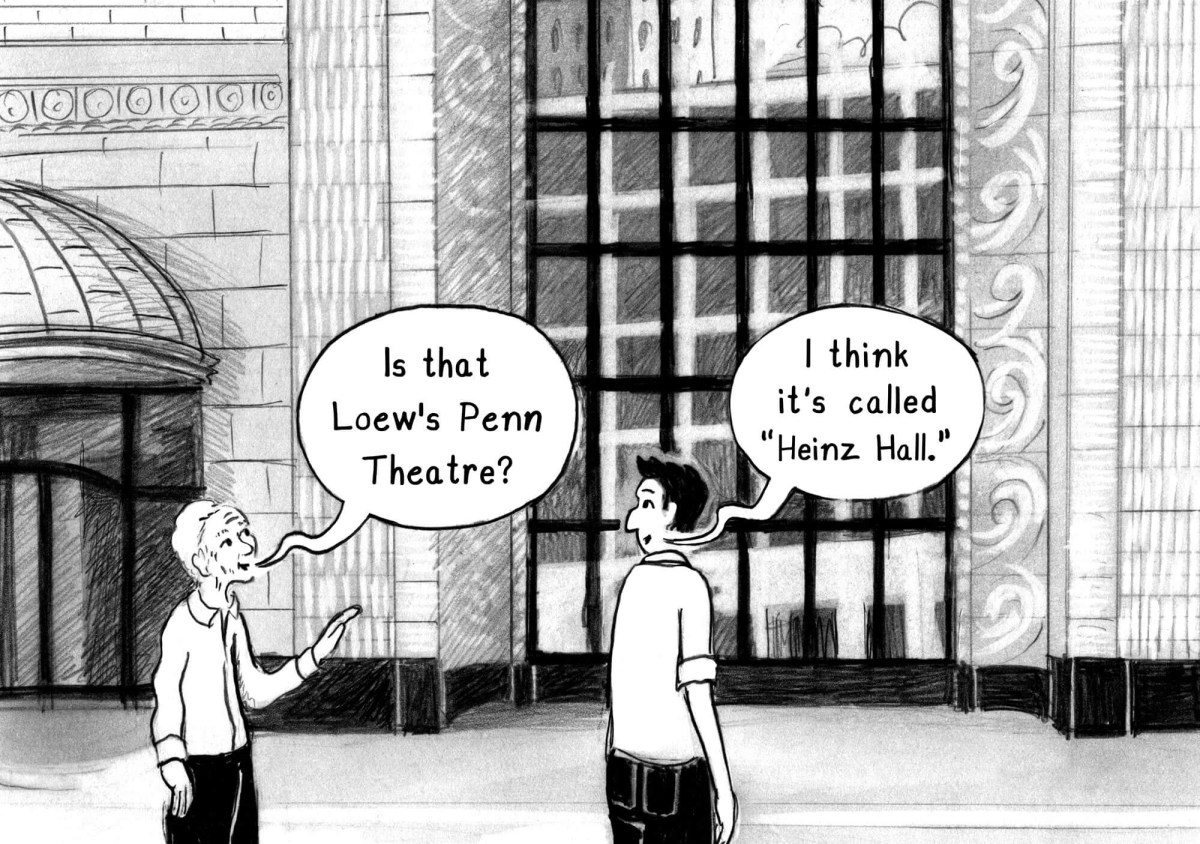I love aggressive music.
In fact, my love of extreme music forms a major part of my identity, like it does for so many others who enjoy heavy metal, punk rock and hardcore. This is my toe-tapping, heart-thumping, above-the-neck music that has brought me joy over the past few decades.
The first time I knew I loved aggressive music was in grade school. The ubiquity of MTV and pop radio exposed me to videos and music from varied artists. Something happened to me when I first heard the sound of the electric guitar. It was as if a blast of lightning struck my nervous system. Everything in my body felt supercharged. It’s an excitement I still feel every time I push play. I was bound to be a metalhead.
At the time “hair-metal” was everywhere. This became my entry into the greater world of heavy metal. Seeing videos by Poison, White Lion and Skid Row showed me that others also enjoyed this music. Musical connections with other metalheads forged in grade school led me to bands such as Anthrax and Sepultura, which in turn led me to artists that would eventually become central to my identity in my teen years, such as Helmet, Jawbox and Fugazi. These days I’m quite fond of a subgenre known as doom metal.
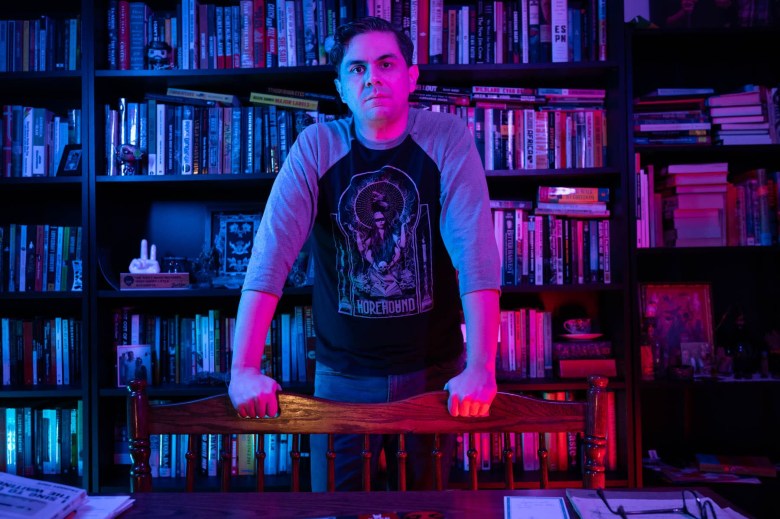
Though heavy metal has an unfortunate reputation for hostility and sometimes even intolerance and racism, I’ve found something entirely different: A scene that has transcended politics and borders, which encourages conversation about taboo topics, marginalized lifestyles and diverse backgrounds — including mine.
My love of aggressive music opened up the world that I only ever saw in newspaper headlines and still photos in encyclopedias, and introduced me to most of my closest friends.
Aggressive sounds and African horizons
Heavy metal has also opened doors to cultures, countries and people in ways I could never have imagined.
As a college student, I majored in political science, and focused my attention on Africa’s post-colonial history. A door opened for me while I was studying for an MA in African Studies in London. Friends in the heavy metal scene there asked me about the metal scene in Africa. I had few answers, but decided to find some.
What I discovered was a continent that was rich with a music scene that resonated for others the way it has for me. I saw firsthand how metal has bridged troubled histories, connected rival ethnic groups and built common understanding.
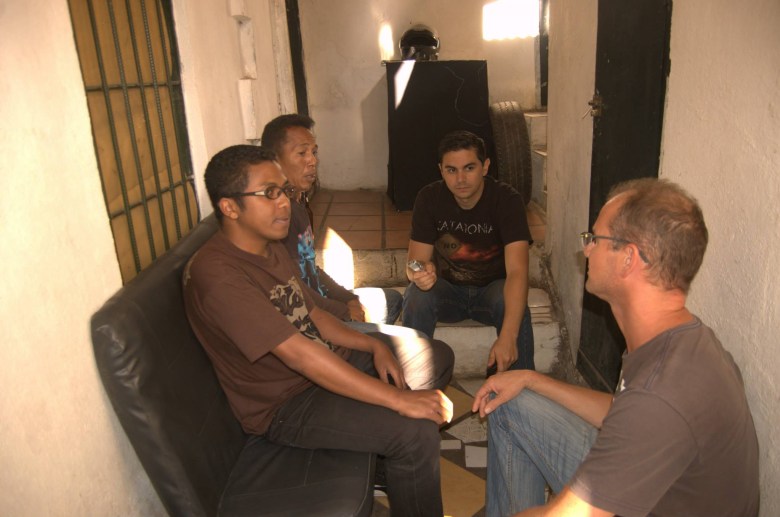
I have since authored two books on the subculture’s existence and challenges in Africa, and have contributed research to the growing body of work of metal studies in academia by way of published papers and speaking engagements across universities in the U.S. and Europe.
Metal has provided me the confidence to step into this world as a scholar and writer, an unimaginable thought as a kid.
Fans in Africa found it much easier to talk to me as an outsider about certain issues because of the common love of metal that allowed us to break through cultural barriers. Notably, many Africans were curious about America’s openness to the LGBTQ+ communities, because being openly gay was still viewed negatively in many countries. This also allowed for questions on American life, social issues and how Africans felt Westerners viewed them.
‘I hope I don’t mess up again’ I thought on leaving prison. Now I help others say, ‘Look what I did!’
I have also seen how metal bands in Madagascar and Togo celebrate their pre-colonial histories and cultures by incorporating pre-Francophone languages and traditions. I met a band from Ghana that uses their music to address widening economic disparities and highlight how poverty is cleaving their county. I have seen how South Africans use metal to build a post-apartheid future, and a band in Zimbabwe that uses heavy metal to spread a message of unity and hope in the midst of authoritarian rule.
Needless to say, these experiences have taught me to be more human, humbling me in multiple ways. And heavy metal is very much at the center of bridging conversations in centers of conflict. In Kenya, I met the band Last Year’s Tragedy, whose music serves to unite the scene as they ask fans to look beyond their ethnic upbringings in the wake of post-election violence that pitted neighbors and communities against each other.

A welcoming scene with global reach
Having had the privilege of learning how aggressive music scenes have come to exist within other cities and countries, especially in Africa, I gained a greater appreciation for the second-to-none scene that exists in my adopted hometown.
I was introduced to this city’s metal scene in the mid-90s, after my mother moved us to Central Pennsylvania. Raised by a single mother, my younger sister and I bounced around more than we would have liked to. My love for metal allowed me to discover more about the region and get closer to others with the same affinity.
For Appalachia-based fans, Pittsburgh’s scene was the “go-to” for what was happening in metal, punk and hardcore. After leaving Pennsylvania for a stint in South Florida, I returned to the Keystone State (this time in Pittsburgh), where I immersed myself in the metal scene as a writer, guitarist in the band Negative Thirteen and passionate fan.
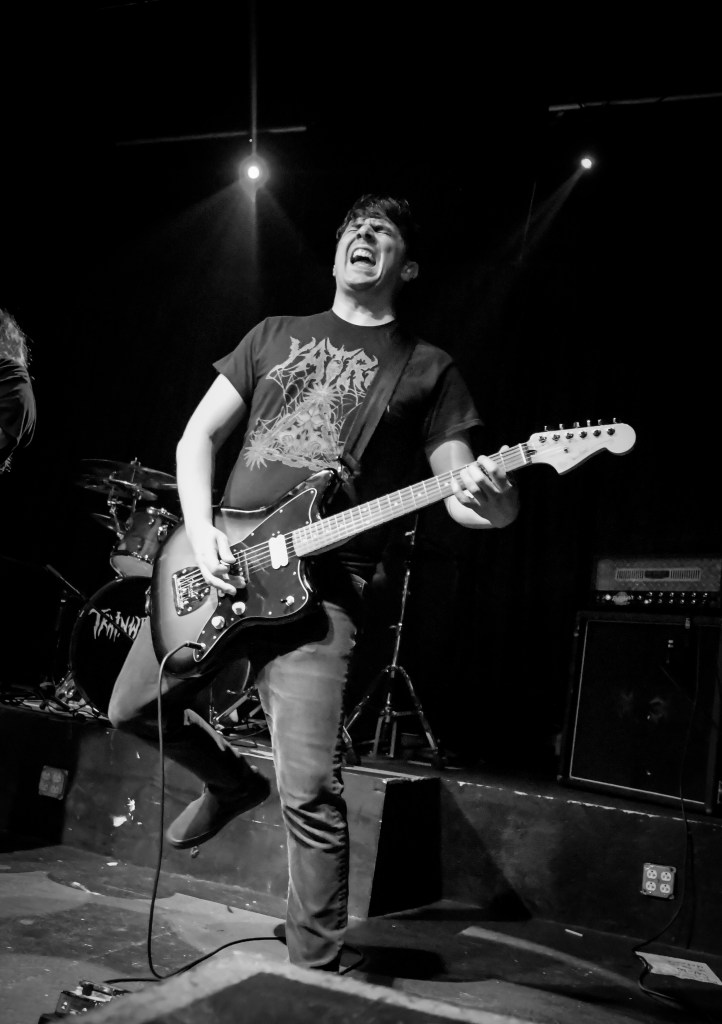
Pittsburgh’s metal scene is ambitious and honest, because of the fans and their drive to keep pushing to the next level. Our scene has long prided itself in being a community bound by our love of metal, punk and hardcore, but also by our status as outsiders.
Though there are times when the scene may not be as unifying as fans feel it could be, Pittsburgh metal fans are quick to remind each other that our love of aggressive music puts us in the same room together, providing an entryway to better understanding others and respecting various lived experiences. Discussions around social and political issues at shows end with handshakes because of this.
Pittsburgh’s Metal, punk and hardcore shows are no place for hate, or spiteful rhetoric of any kind. “All are welcome” is a common theme within the scene and at our venues. This is exactly the welcoming that has allowed me, as a Puerto Rican fan, and many others to feel at home at a metal gig. Notably, the ability to speak Spanish at a metal show with another fan and not be told to “go back to where I came from” is a feeling of comfort I cherish.
The work ethic, talent and passion that many in this city have for aggressive music has only grown in recent years and it is a scene that we have been able to share with the rest of the world in a big way.
In the mid-1980s and early 1990s, bands such as Dream Death, Eviction, Aus-Rotten, Half Life and Zao began pushing Pittsburgh’s aggressive music scene to audiences worldwide. Since then bands such as Signs of the Swarm, Lady Beast, Submachine and Horehound have kept its aggressive music engine revving. All of these bands have fan bases throughout the U.S. and abroad.
Others have elevated this scene to another level.
Code Orange formed when its primary members were students at the Pittsburgh CAPA 6-12 arts magnet, and they have gone on to become a global brand with two Grammy nominations. Citing punk, hardcore and metal influences, their success was expected by many who closely watched the local scene.
It is remarkable to walk into a record shop in Stockholm or Tel Aviv and see an album by one of Pittsburgh’s own, or to see fans wearing shirts of bands from the Pittsburgh scene at metal festivals in Kenya and Johannesburg. Having fans and musicians in various cities around the world ask me about Pittsburgh’s metal scene has been wonderful.
What is it about our scene that has brought it to stages around the world? Part of it is the work ethic that many in this city know all too well. Most here grew up in working-class homes with working-class upbringings and values that encouraged people to push forward regardless of circumstances — a true “do-it-yourself” mindset.
Larimer’s 103-year-old ‘Mr. Tony’ taught me Pittsburgh history, cement mixing and how immortality emerges
Going underground
It was not always like this.
By the mid-2000s, Pittsburgh’s metal scene was fairly stagnant. Gatekeeping and “scene politics” kept many bands from making strides. Bands struggled to get gigs, promote themselves and get taken seriously by other fans of aggressive music in this city.
What happened next was an ignition.
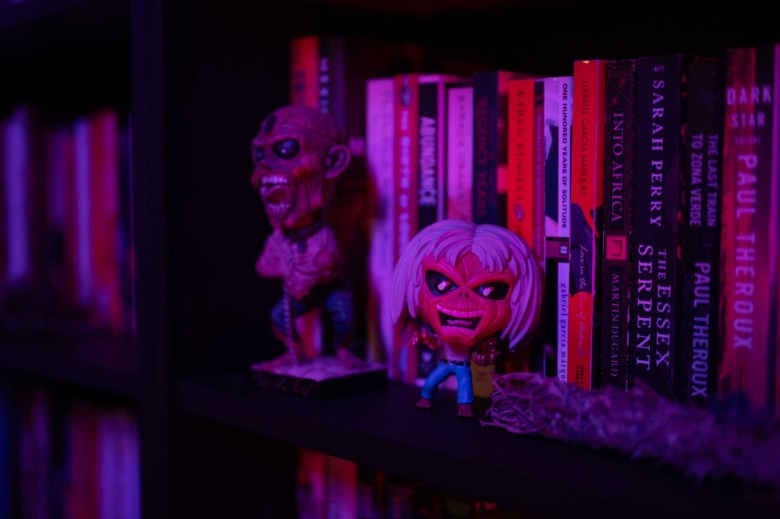
Independent promoters got more involved in the local scene, encouraging venues to take metal more seriously. Heeding the call were Mr. Smalls Funhouse, Penn Brewery, Shred Shed and the aggressive music Mecca in the making, Preserving. These venues and promoters have provided local acts the opportunity to perform with touring acts and to connect with regional artists while elevating our own scene.
Bands started to push each other in a way that fostered a professional outlook. With the ever-moving vicissitudes of the music industry, musicians started to assist each other by promoting local bands on social media platforms, offering up design services or assisting in teaching other musicians how to navigate new avenues such as streaming and platforms. Record labels such as 20 Buck Spin, Willow Tip, Our Ancient Futures, Play Alone and Katzulhu Productions have helped validate Pittsburgh’s scene by investing in a city that believes it can be a global center for heavy metal.
Eventually Pittsburgh’s metal scene started to believe in itself. The success of festivals such as Deutschtown Music Festival, The Millville Music Festival, Descendants of Crom, Metal Immortal and Skull Fest have provided opportunities for fans and musicians to converge in new spaces and enjoy the local talent.
For me heavy metal has become more than just another lineup of albums in a playlist. It has shaped my identity, providing me with a passport of memories and a life of words that continues to open up new doors for me and take me to places I had only previously dreamed of seeing. There is nothing like heavy metal.
Edward Banchs is an author and independent researcher based in Verona and can be reached at edwardbanchs@gmail.com.


